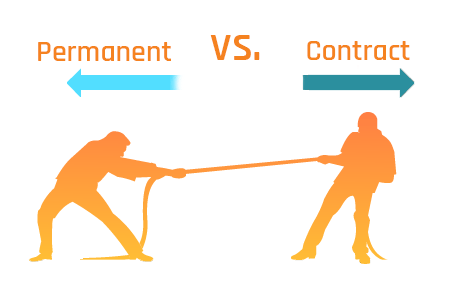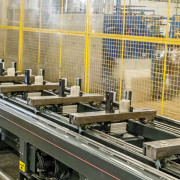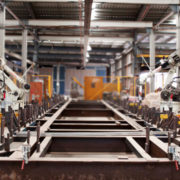Permanent vs Contract: A Debate Revisited
“To be or not to be” was a question originally made famous by William Shakespeare in ‘Hamlet’. This is not to be confused with the question of “to be a contractor or not to be” which has been posed by technical professionals all over the world in the last couple of decades – a clear consensus on whether permanent work has more to offer than contract work has never been reached.
Why might permanent employment be the way to go instead of contract work in 2019?
Roughly a year ago we published an article where we measured up the pros and cons of permanent work against being a contractor work. The contractor lifestyle definitely has a lot going for it – you get to be your own boss, right? Taking on only the work that you want to do? And while some really enjoy the freedom and the obvious flexibility it offers, it’s not a lifestyle that agrees with everyone. Considering the sheer volume of permanent positions that clients ask us to help them fill on a daily basis, it pays to ask the question: Why would you take a permanent position over contract work in 2019?
If you’re currently or have ever been a full-time permanent employee, then you know that working in such a capacity affords you far greater stability and job security. It’s in the name – ‘permanent’ implies that once you’re in the company, you’re in it until you leave (hopefully of your own volition!). The nature of contract work means that you’re are constantly on-the-move. You might land a position with Company X for 6 months, then with Company Y for 12 months after that, and then end up completing a 4-month stint at Company Z. If you’re new to the contractor lifestyle, then something you may not consider is how much work you actually have to do yourself between those jobs as well. Rather than scanning job boards or websites for positions, you’re marketing yourself in any way you can so that you can stand out from other contractors who are also vying for work. Not only are you not paid for this, but it actually chews up a lot of time and effort, as opposed to clicking a few ads online and sending your CV to prospective employers. The pay-off can definitely be sizable in the long-run, but don’t underestimate how much extra work you’ll have to put in to get there.
Something also worth doing your research on if you’re thinking of becoming a contractor rather than a permanent employee is the differences in employment law between the two, especially in New Zealand. Contractors in New Zealand are unfortunately not covered by most employment-related laws so they ‘miss out’ on a lot of the benefits that full-time, permanent employees typically receive. These benefits include annual leave and sick leave entitlements. Not only this, but contractors earning above $60,000 in New Zealand and required to register for goods & services tax, and all tax and ACC levies incurred by contractors needs to be paid manually. Permanent employees don’t encounter these obstacles and they get the added perk of paid holidays. They also don’t have to worry about receiving their pay – that is to say that you’ll need to invoice your employers for the work you do for them, rather than simply being paid automatically at regular intervals. It’s common for contractors to make a lot of money depending on the market conditions they’re operating in. That being said, your projects can also go over-budget or incur more expenses than anticipated, which can slim profit margins quickly.
Finally, at the end of the day, there’s also something to be said for being loyal to one employer for an extended period of time in a permanent position. It’s no secret that employers value loyalty, and employees that stick around are generally afforded perks over time that contractors aren’t. These perks include payrises and promotions, both of which are rewards for becoming increasingly useful to the business as you grow and become more experienced in your role. Where those doing contract work can sometimes plateau, permanent staff begin climbing the mountain from day one. It’s not just financial incentives that allure permanent employees, however. There’s also the opportunity to become embedded in a company’s culture – almost like a second home. Over time, permanent employees begin to feel a sense of belonging to a company and generally won’t find it easy to leave. Similarly, an employer isn’t going to feel compelled to let that employee go once they’re so well integrated into the business that losing them would be a detriment to operations and maybe even team morale. Permanent employees typically attend company functions and events that foster team integration, where contractors are sometimes absent from these.
There are certainly perks to being both a contractor and a permanent employee. However, the differences between the two are somewhat polarising, especially when it comes to New Zealand law. Perhaps you’ve been tossing up between the two and still aren’t sure which way to go? Technical Recruitment Solutions recruits primarily for permanent employment positions nationwide in the engineering, construction and technical industries. If you want to see what options we currently have available, head over to our job search page and we’ll help you find the right position, just in time for 2019.
Article by Dario Luca, Marketing Coordinator
















Leave a Reply
Want to join the discussion?Feel free to contribute!